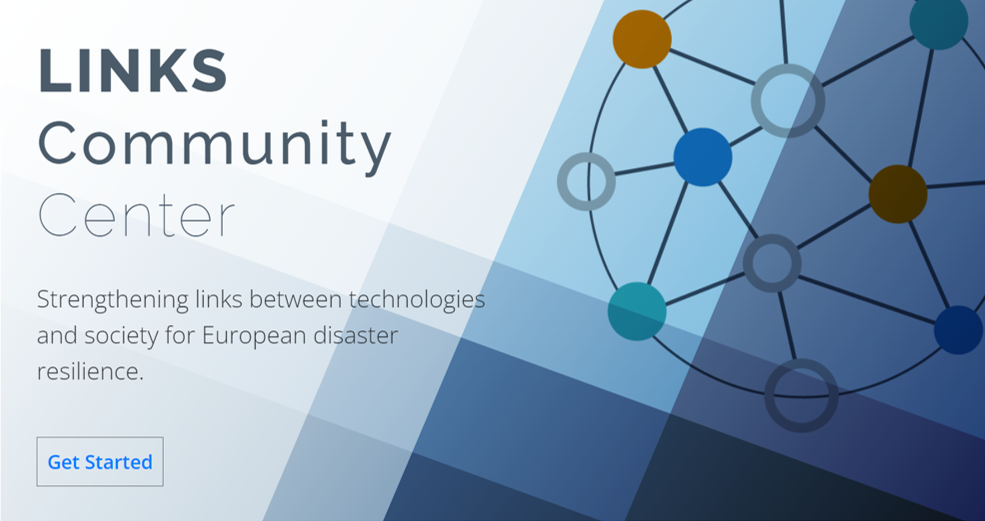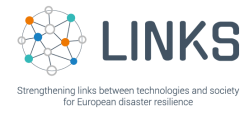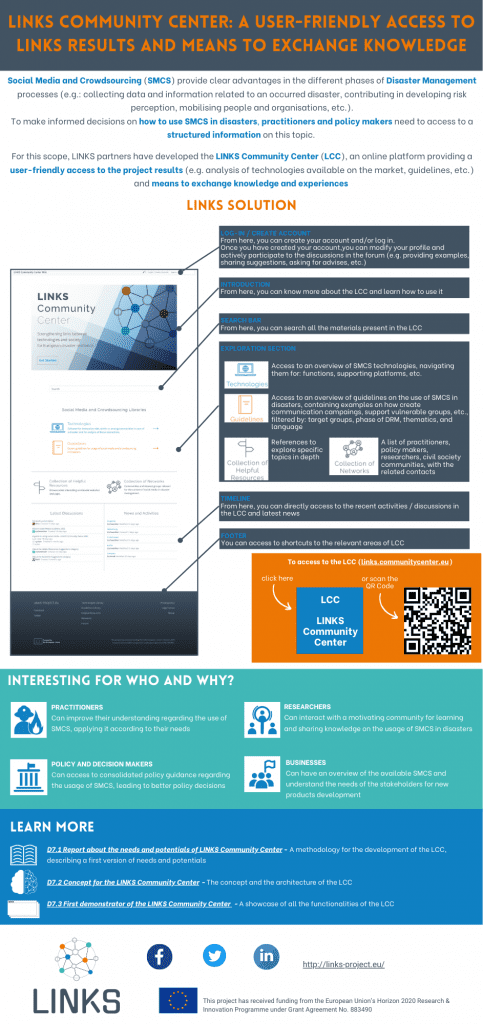
The LINKS Community Center (LCC) is a web-based platform for the LINKS Community, enabling the Community to exchange information and experiences and to access, discuss and assess products developed by the project and contained within the LINKS Framework. This article briefly showcases the current state of the implementation of LCC which will be iteratively tested and improved together with the consortium partners and external stakeholders. It is based on deliverable D7.1 – Report about the needs and potentials of LINKS Community Center, which elaborated the needs and potentials for the LCC, deliverable D7.2 – Concept for the LINKS Community Center, which described the concept and architecture of the LCC and deliverables D7.3 – First demonstrator of the LINKS Community Center and D7.4, which demonstrated the technical implementation of the LCC.
The LCC consists of three main components. A wiki provides the possibility to access the structured knowledge generated by the LINKS project. At the same time, the wiki allows interested collaborators outside the LINKS project to contribute their own knowledge and ideas directly to LINKS. Furthermore, the wiki provides standardised software interfaces for accessing the stored knowledge. A forum supports the community aspect of the LCC and can be used as a low-barrier entry point for contributors of the LCC. Where relevant, the forum is integrated with the wiki, i.e., to provide commenting features for Technologies. A cloud software augments the software tools available to the users of the LCC and provides collaboration and file sharing features. All components use one common login system with single sign-on capabilities and feature the possibility to login with existing social media accounts.
The LCC currently provides access to the following LINKS products:
- Technologies: Library of software solutions for the interaction with, within or among communities in case of a disaster and for the analysis of these interactions.
- Guidelines: Library of various expert guidelines on the usage of social media and crowdsourcing in disasters.
- Helpful Resources: Collection of interesting or relevant websites and apps.
- Networks: Collection of communities and interest groups relevant for the context of social media in disaster management.
The next steps in the development of the LCC will be the inclusion and refinement of more content as the products become available from their respective work packages. A key focus will be the Guidelines library, the Examples library, and the overall LINKS Framework. Based on this ever-increasing amount of content available, the LCC will be evaluated through various means. The series of evaluations already started based on LINKS Community Workshops and the LINKS Advisory Committee meetings will continue to contribute to the LCC’s continuous improvement. This will be further augmented by user testing of the LINKS products available through the LCC in the second round of case assessments.


